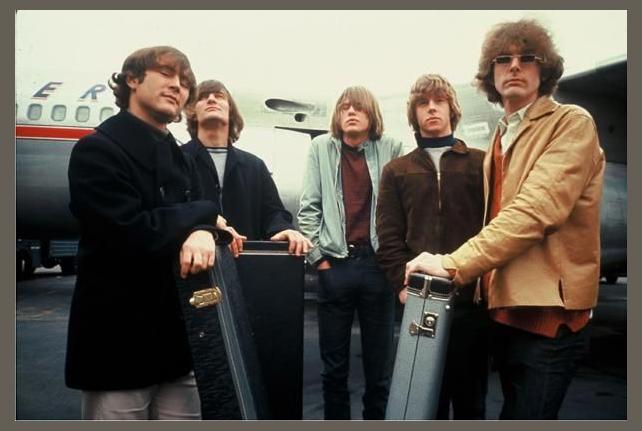 The Byrds
The Byrds
The Byrds: A Folk-Rock Revolution
In the midst of the counterculture era, a group of young musicians emerged from Los Angeles with a sound that would forever alter the landscape of popular music. The Byrds, led by the enigmatic Roger McGuinn, fused the harmonies of folk with the pulse of rock 'n' roll, creating a genre-bending phenomenon that transcended generations.
Formative Years and Challenges
The Byrds originated in 1964 as a folk ensemble called The Jet Set. They initially faced skepticism from the Los Angeles music scene, which was dominated by surf rock. Undeterred, the band embraced the folk revival and signed with Elektra Records. However, their early recordings failed to gain commercial success.
Turn, Turn, Turn: A Breakthrough
In 1965, The Byrds released their groundbreaking single "Turn, Turn, Turn," a cover of Pete Seeger's interpretation of the biblical text Ecclesiastes. The song's introspective lyrics and soaring harmonies resonated with the youth of the time, becoming an anthem for peace and social change. "Turn, Turn, Turn" catapulted The Byrds to stardom and established their position as pioneers of folk-rock.
Discography and Evolution
The Byrds followed up the success of "Turn, Turn, Turn" with a string of hit albums, including "Mr. Tambourine Man" (1965), "Fifth Dimension" (1966), and "Sweetheart of the Rodeo" (1968). The band's music evolved throughout their career, incorporating elements of psychedelia, country, and experimental rock.
Members and Controversies
The Byrds featured a rotating lineup of talented musicians. Key members included:
* Roger McGuinn: Lead vocalist, guitarist, and songwriter
* Gene Clark: Vocalist, guitarist, and songwriter
* David Crosby: Vocalist, guitarist, and songwriter
* Chris Hillman: Bassist and vocalist
* Michael Clarke: Drummer
The band faced numerous controversies during their existence. Gene Clark departed in 1966 due to creative differences, while David Crosby was fired in 1967 for his volatile behavior. Despite these challenges, The Byrds continued to produce groundbreaking music.
Legacy and Influence
The Byrds disbanded in 1973, but their influence remains profound. Their blend of folk and rock paved the way for countless bands that followed, including Crosby, Stills, Nash & Young, and The Eagles. The Byrds' music continues to inspire and captivate audiences worldwide, a testament to their enduring legacy as one of the most innovative and influential bands in popular music history.
In the midst of the counterculture era, a group of young musicians emerged from Los Angeles with a sound that would forever alter the landscape of popular music. The Byrds, led by the enigmatic Roger McGuinn, fused the harmonies of folk with the pulse of rock 'n' roll, creating a genre-bending phenomenon that transcended generations.
Formative Years and Challenges
The Byrds originated in 1964 as a folk ensemble called The Jet Set. They initially faced skepticism from the Los Angeles music scene, which was dominated by surf rock. Undeterred, the band embraced the folk revival and signed with Elektra Records. However, their early recordings failed to gain commercial success.
Turn, Turn, Turn: A Breakthrough
In 1965, The Byrds released their groundbreaking single "Turn, Turn, Turn," a cover of Pete Seeger's interpretation of the biblical text Ecclesiastes. The song's introspective lyrics and soaring harmonies resonated with the youth of the time, becoming an anthem for peace and social change. "Turn, Turn, Turn" catapulted The Byrds to stardom and established their position as pioneers of folk-rock.
Discography and Evolution
The Byrds followed up the success of "Turn, Turn, Turn" with a string of hit albums, including "Mr. Tambourine Man" (1965), "Fifth Dimension" (1966), and "Sweetheart of the Rodeo" (1968). The band's music evolved throughout their career, incorporating elements of psychedelia, country, and experimental rock.
Members and Controversies
The Byrds featured a rotating lineup of talented musicians. Key members included:
* Roger McGuinn: Lead vocalist, guitarist, and songwriter
* Gene Clark: Vocalist, guitarist, and songwriter
* David Crosby: Vocalist, guitarist, and songwriter
* Chris Hillman: Bassist and vocalist
* Michael Clarke: Drummer
The band faced numerous controversies during their existence. Gene Clark departed in 1966 due to creative differences, while David Crosby was fired in 1967 for his volatile behavior. Despite these challenges, The Byrds continued to produce groundbreaking music.
Legacy and Influence
The Byrds disbanded in 1973, but their influence remains profound. Their blend of folk and rock paved the way for countless bands that followed, including Crosby, Stills, Nash & Young, and The Eagles. The Byrds' music continues to inspire and captivate audiences worldwide, a testament to their enduring legacy as one of the most innovative and influential bands in popular music history.